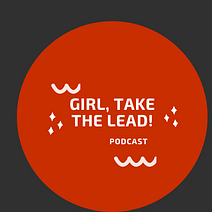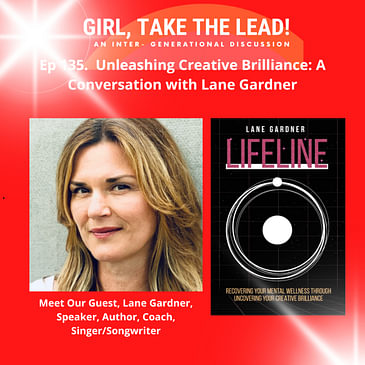Lane Gardner, Gen X, Speaker, Author, Coach, Singer/Songwriter joins Yo to talk about her book, Lifeline, Recovering your Mental Wellness through Uncovering Your Creative Brilliance.
Lane is devoted to guiding individuals to discover their authentic selves through creative expression. She’s crafted Self-Mastery Tools for mental wellness, empowering others to embrace life with joy, creativity, and the freedom to be you.
Despite a tumultuous start marked by the fallout of her father's PTSD, her family's involvement in a religious cult, and the challenges of an abusive stepparent, Lane found solace and inspiration in her family's rich musical tradition. Lane discovered her own gifts at age 9, excelling in singing and finding refuge in the local community theater.
After being invited to work with students at Marjory Stoneman Douglas High School in Parkland, Florida after the horrific mass shooting at their school in 2018, Lane knew she needed to mobilize a new mission to foster connection and healing within communities by transforming individual and collective trauma into original works of art.
She founded a therapeutic arts non-profit organization THREAD, brings the healing power of creative expression to individuals and communities living in and with trauma.
Through arts centered and therapeutic workshops, THREAD serves the needs of survivors of abuse, those struggling with addiction and mental health, cancer survivors, incarcerated men and women, veterans, and those impacted by inequality and discrimination of any kind.
Here are the three takeaways from today’s episode:
1. We already have everything we need inside us to navigate the ups and downs of life and find greater fulfillment by aligning more with our fullest selves.
2. Our one-of-a-kind, unique creative expression is the perfect toolbox for each of us, opening a direct line to all the inner-resources, assets, skills for everyday mental wellness and deep healing.
3. Accessing our inner creative brilliance isn't about feeling pressure to be an "artist", it's a pathway to self-discovery, healing and fulfillment.
As Mentioned:
Lane’s Book: Lifeline: Recovering Your Mental Wellness Through Uncovering Your Creative Brilliance
Hear Me Out (written by students living in the aftermath of the February 14th, 2018 school shooting at Marjory Stoneman Douglas in Parkland, FL)
Inner Critic Ep 126
More About Lane:
As Lane facilitated programs for others, she concurrently unraveled her own journey, gradually healing from early traumas. Shifting from finding solace on the stage to delving into her own stories, Lane embraced songwriting as a powerful form of self-expression. This transformative process culminated in her debut album, "Fertile Ground," released in 2015 on her record label, Third Road Records.
Her life experiences uniquely equip her to guide others through a journey of SELF discovery. Lane Gardner is not just a witness to the transformative power of the arts but a living embodiment of its profound impact on personal growth and healing.
How to Reach Lane:
Website: www.lanegardner.com - Join her newsletter!
Learn more about Lane's therapeutic arts non-profit org, THREAD: www.threadconnects.org
Facebook: www.facebook.com/lanegardnermusic/
Instagram: www.instagram.com/lanegardner120/
LinkedIn: www.linkedin.com/in/lanegardnerthreadconnects/
How to Reach Yo Canny:
Our website:
You can send a message or voicemail there. We’d love to hear from you!
email: yo@yocanny.com
FB group: Girl, Take the Lead
https://www.facebook.com/groups/272025931481748/?ref=share
IG: yocanny
LinkedIn:
https://www.linkedin.com/in/yocanny/





